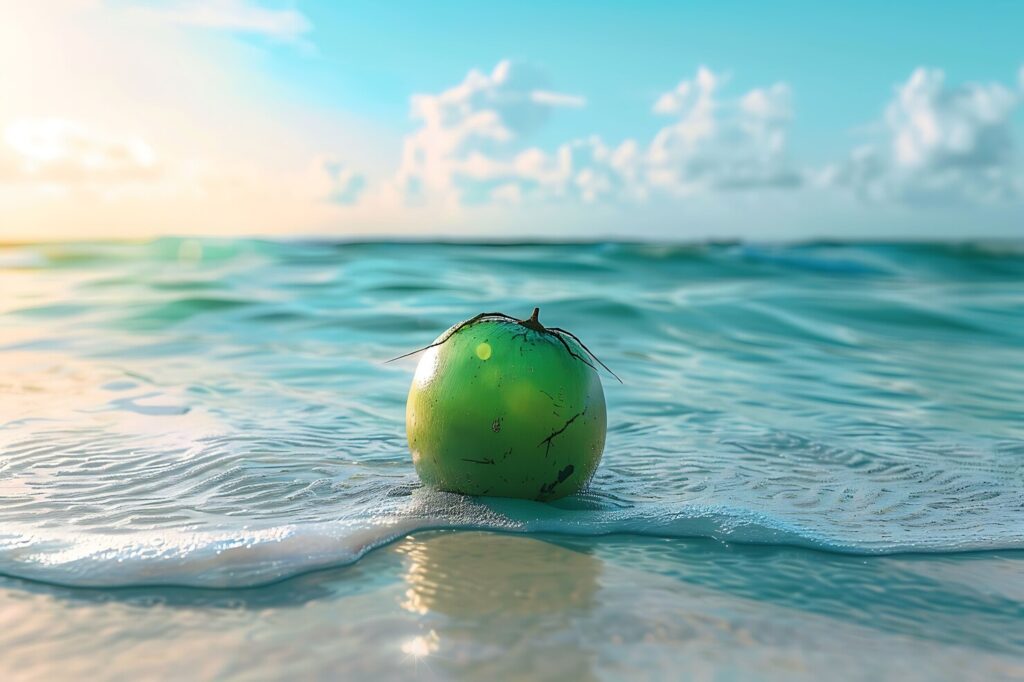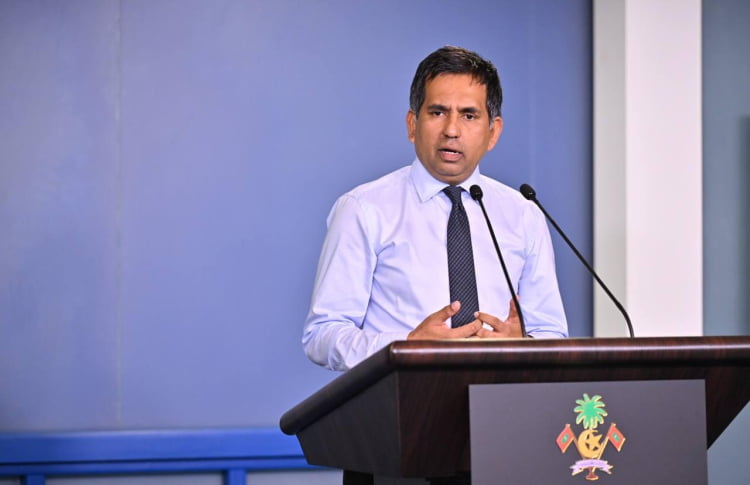
Economic Resilience and Steady Development
The Maldives has showcased a significant and steady growth trajectory over the last two decades, underscoring its robust economic framework. Despite facing numerous global challenges, the country has displayed remarkable economic resilience. The Maldives’ GDP growth has been particularly noteworthy. Historically, it has maintained one of the highest GDP growth rates among small economies, primarily driven by two pivotal sectors: tourism and fisheries.
The tourism sector, in particular, has been the cornerstone of the Maldivian economy. With its pristine beaches, luxurious resorts, and crystal-clear waters, the Maldives has consistently attracted a high volume of international tourists. This influx has provided a consistent revenue stream, bolstering the nation’s economic stability. Additionally, the hospitality and tourism industries have spurred the growth of various ancillary services, contributing further to the overall economic well-being. Investing in the Maldives within these thriving sectors offers promising returns, as tourism continues to be a vital financial pillar.
Another significant contributor to the Maldivian economy is the fisheries sector. The country’s extensive marine resources have facilitated a thriving fishing industry. Traditional fishing practices, combined with modern techniques, have enabled the Maldives to export high-quality fish products globally. This sector not only supports local livelihoods but also strengthens the national economy through export revenues.
In recent years, the service sector has also begun to burgeon, adding to the country’s economic diversification. Banking, telecommunications, and professional services have experienced considerable growth, creating new opportunities for both domestic and foreign investors. The continuous development of infrastructure and technology in these areas further enhances the investment potential in the Maldives.
The Maldivian government has played an essential role in fostering economic stability and investor confidence through prudent economic policies. Regulatory frameworks, aimed at creating a conducive business environment, have attracted significant foreign direct investment. Moreover, policy initiatives focusing on sustainable development ensure long-term economic prospects, making it an attractive destination for those looking to invest strategically.
Investing in the Maldives is backed by a history of steady development, diverse economic opportunities, and a secure environment nurtured by forward-thinking economic policies. Whether looking at tourism, fisheries, or the burgeoning service sector, the economic foundation of the Maldives offers a promising landscape for prospective investors.
Pro-Market Policies and Government Initiatives
The Maldives government has shown substantial commitment towards fostering a dynamic, pro-market environment to attract foreign investments. One of the key strategies employed to stimulate investment in Maldives is the implementation of a plethora of tax incentives. Investors benefit from significantly reduced import duties, tax holidays, and exemptions on profits and dividends, making the financial landscape highly favorable. These fiscal policies are part of a broader economic visionary framework intended to establish the Maldives as a competitive international hub.
Central to these initiatives is the unified business registration service provided by Invest Maldives. This streamlined approach consolidates multiple bureaucratic processes into a single, user-friendly platform, significantly reducing the administrative burden on investors. Consequently, entrepreneurs can focus more on their core business functions rather than procedural complexities. This transparency and efficiency foster greater confidence in the Maldivian marketplace.
Public Private Partnership (PPP) programs also play a critical role in ensuring sustainable development while promoting investment opportunities in the Maldives. The government actively encourages collaborations between public entities and private sector players to undertake large-scale infrastructure projects. These partnerships are vital in sectors such as tourism, renewable energy, and healthcare, aligning with the government’s long-term strategic vision. By sharing risks and leveraging private sector expertise, the government aims to deliver high-quality public services and infrastructure, thus creating an investment-friendly environment.
Additionally, the government’s proactive stance on regulatory reform speaks volumes of its dedication towards enhancing the ease of doing business. Regulatory frameworks are continuously evaluated and amended to ensure they remain investor-friendly, thus highlighting the Maldives as a stable and progressive destination for foreign investment. Overall, these pro-market policies and government initiatives significantly enhance the attractiveness of investing in Maldives while providing a solid foundation for sustainable economic growth.
Incentives and Investor-Friendly Environment
Investing in the Maldives offers an array of significant incentives and benefits, making it a highly attractive destination for foreign investors. One of the key elements that draw investors is the straightforward entry mechanisms, including business visas and corporate resident visas. These streamlined processes allow for easy market entry and the establishment of business operations in the Maldives with minimal bureaucratic hurdles.
Another notable incentive is the exemption from customs duties for large-scale projects. This exemption reduces initial setup costs, contributing to the profitability and feasibility of extensive investments. Additionally, the Maldives does not impose restrictions on the repatriation of profits and capital proceeds. Investors can freely transfer their earnings and capital out of the country, ensuring financial flexibility and security for their investments.
The Maldives also offers considerable freedom in employing foreign managerial, technical, and unskilled workers. This flexibility allows investors to leverage international expertise and workforce capabilities to drive business success. Moreover, incentives are provided to foreign portfolio investors, broadening the investment landscape and enabling diversification opportunities.
International arbitration plays a crucial role in dispute resolution, adding another layer of security for investors in the Maldives. In the event of conflicts, investors can rely on a robust legal framework supported by international arbitration standards. This transparency and accountability are essential for maintaining investor confidence.
Furthermore, the long land lease options available for up to 99 years provide substantial security and stability for long-term investments. This extended lease duration facilitates the development of large-scale projects and ensures that investors can achieve a considerable return on investment over time.
Overall, the combination of these incentives and the investor-friendly environment makes the Maldives an attractive hub for foreign investment, fostering economic growth and development within the region.
Sector-Specific Opportunities and Strategic Advantages
The Maldives presents a plethora of sector-specific investment opportunities, guided by both its natural resources and strategic geopolitical positioning. Tourism and hospitality remain the cornerstone of the Maldivian economy, attracting millions of visitors annually. This sector continues to burgeon, offering robust opportunities for investors to enter the market with new resorts, boutique hotels, and luxury services. Notably, the government’s commitment to enhancing the ease of doing business further underpins investment in Maldives, fostering a conducive environment for growth.
Emerging as a vital sector, renewable energy presents substantial potential, particularly in solar and wind power. With an abundance of sunshine and favorable wind conditions, the Maldives aims to reduce its dependence on imported fuel while simultaneously addressing environmental concerns. Investment in renewable energy not only promises high returns but also aligns with global sustainability goals, making it a lucrative and ethical choice.
The fisheries and agriculture sectors are integral to the Maldivian economy, providing avenues for expansion and modernization. Traditional fishing has long been a mainstay, but there is significant scope for innovation, such as sustainable fish farming and advanced processing technologies. Similarly, hydroponic farming and other modern agricultural methods can help meet the local demand for fresh produce, reducing import reliance and enhancing food security.
Real estate development in the Maldives has also seen a surge in interest, driven by both residential and commercial needs. Strategic advantages like favorable zoning laws, tax incentives, and a stable political climate enhance the attractiveness of investing in this sector. The burgeoning real estate market offers promising returns, particularly in developing high-end residential properties and commercial spaces that cater to both locals and expatriates.
Infrastructure development rounds out the spectrum of investment opportunities. With ongoing projects aiming to enhance connectivity across the archipelago, the Maldives is focused on upgrading its transport, telecommunications, and utility networks. This not only supports tourism and other key sectors but also strengthens the overall investment framework. Successful case studies, such as the development of Velana International Airport and various resort islands, underscore the potential for profitable ventures.







